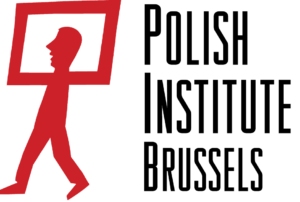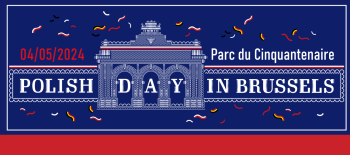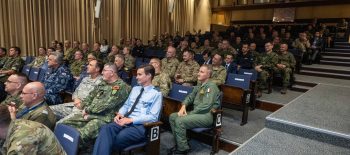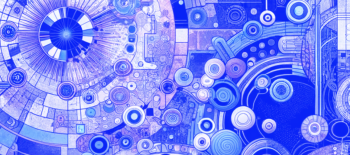Throughout the years, the Polish Institute in Brussels has come a long way, met all kinds of people, organised a host of cultural events and, most of all, put Polish culture front and centre in Belgium, We have already achieved a great deal, and we hope to do a lot more.
Given that 2018 marks exactly 100 years since Poland regained its independence, and the fact that we would like to have an overview of what role Polish culture (in the broadest sense) plays in contemporary Belgian society, we hit the road to look for people who could tell us something about what Poland and Polish culture means to them.
Some of them were previously unknown to us. Others were people with whom we had already collaborated regularly in the past. Some have an obvious connection to Poland, while you need to dig a little deeper to find the link for others. And that’s exactly what we wanted; culture can influence and inspire a person in many ways. That’s what you will see with our guest speakers: a Polish influence on certain aspects of their lives
Every two weeks we will release another part of our series!
Overview:
- BOIC
- Harlan Levey
- Ezra Veldhuis and Tineke Bacqué
- Ypres Chamber Choir
- Dirk Verbeke
- Annie Grzeskowiak
- Pieter Lagrou
- Bosse Provoost
BOIC (Belgian Olympic and Interfederal Committee)
The Olympic Winter Games have come to an end, and medals were rather scarce, both for Poland (2, both in ski-jumping, including a gold medal for national hero Kamil Stoch) and Belgium (1 on the last day). But, the last time the World Games took place in 2017, both countries managed to take home at least 20 medals! And where did those World Games took place? That’s right, in Wrocław!
Before the Belgian athletes took off for Poland, we invited them to the Polish Institute to get acquainted with Poland and Wrocław by participating in workshops.
For this video, we visited Rudy LAHOR and Luc RAMPAER from the BOIC (Belgian Olympic and Interfederal Committee), who made sure everything went well for Team Belgium, and asked them to look back on the World Games in Wrocław.
Harlan Levey
It’s quite some time since Harlan LEVEY crossed the Atlantic Ocean, from the USA to Europe. Although he has some Polish blood running through his veins, he did not choose to settle in Poland, instead opting to put down roots in our very own Low Countries. Nowadays he’s settled in Brussels and has his own art gallery in the city, Harlan Levey Projects.
The Polish Institute has already collaborated with Harlan Levey on a few occassions for exhibitions by Polish artists, namely Marcin Dudek and Radek Szlaga (see here, here and here). Harlan never intentionally looked for Polish artists, but he found them anyhow. He is a great admirer of their work, for several reasons. In the movie, Harlan himself will tell you what the collaboration with these Polish artists means to him!
Ezra Veldhuis and Tineke Bacqué
In 2015 Polish artists from the School of Murals in Gdańsk visited Ghent. Sightseeing definitely wasn’t on the agenda, as they came to paint a mural, together with some students from the School of Arts KASK. You can still go and see the mural now, which is located in the very centre of the city!
In 2016 the KASK students took a trip to Poland, more precisely to the village of Wizna, in north-eastern Poland, to paint some other murals. These students, Ezra VELDHUIS and Tineke BACQUE, are now taking their first steps into the art world. We visited them to talk about their experiences and invited them to predict the future, in traditionally Polish style!
Ypres Chamber Choir
In 2014, we commemorated the 100th anniversary of the outbreak of World War I. On the occasion of this commemoration, an international concert was organised, entitled “Thousand Voices for Peace“, bringing together singers from all over the world to perform a piece written by the Polish composer Krzysztof Penderecki.
We invited Medici Cantantes, a choir from Wrocław. During their stay, they also visited the Ypres Chamber Choir, with whom they gave a joint concert in Ypres. In the film, some members of the chamber choir look back at that time.
Dirk Verbeke
On 8 May, we commemorate the official end of World War II. Everywhere in Belgium, you can find organisations that try to keep memories of the war alive. One example is ‘Eerste Pools Pantserdivisie’ (First Polish Armoured division), in honour of General Maczek’s First Polish Armoured Division, that liberated several parts of Flanders throughout September 1944.
Dirk VERBEKE is president of this organisation, and thus very involved with the history of Poles in Belgium. Besides this, he also founded several projects between the city of Tielt and Poland. We visited Dirk at a traditional Polish Christmas dinner, where he told us all about his link to Poland.
Annie Grzeskowiak
Of all the people we spoke to in this series, Annie GRZESKOWIAK has to be the most obvious choice: as her name suggests,she’s a child of Polish parents. She herself, however, is Belgian to the bone, as she was born and raised here.
That said, her Polish roots were always present in some way throughout her life. Polish culture was passed on to her by her parents, mainly in the shape of traditions and folklore. We’ll let Annie herself speak about how this Polish culture was passed on in Belgium.
Pieter Lagrou
As a professor of contemporary history at the ULB (Université Libre de Bruxelles), Pieter LAGROU frequently collaborates with the Polish Institute. On several occasions he was asked by us to share his knowledge as an historian, and he also received our support for study trips to Poland
Pieter Lagrou’s link to Poland is not, as you might think, a result of his interest in Polish history, but much more connected to his interest in the impressive and rich museum culture in Poland. Pieter Lagrou will reveal more in the movie.
Bosse Provoost
We didn’t know Bosse PROVOOST at the Polish Institute before our recording took place, but we are very glad to have met him! Bosse is a young and promising theatre director, who has already received a prize from the Flemish theater festival Theater Aan Zee (Theatre at Sea), and whose performances are always praised by critics and audiences.
Let’s be honest: the fact that he has a theatre collective named de polen (the Poles) was a pretty clear indication of some Polish influence. And this is indeed the case: Bosse derives much of his inspiration from the work of Polish artists like Gombrowicz, Borowczyck, Grotowski and Górecki. He even named one of his performances after the latter! In the movie, Bosse himself will explain to you what these influences mean to him.
Finally we would also like to thank the following persons, without whom we never could’ve realised this project:
- Marta KUCZA, the director who managed the whole project and made sure everything went right;
- Tom GINEYTS and Didier GUILLAIN, respectively the cameraman and sound engineer whose contribution is undeniably;
- Frédérick DUPONT, who was responsible for the editing of all separate parts;
- Hélène CLERC-DENIZOT, who was in charge of the soundmixing;
- Ségolène NEYROUD, who came up with the sounds for the title sequence;
- Christian PICON from Pixileon, who animated our title sequence,
- And of course everyone who was so kind to participate in our project with a short interview!



